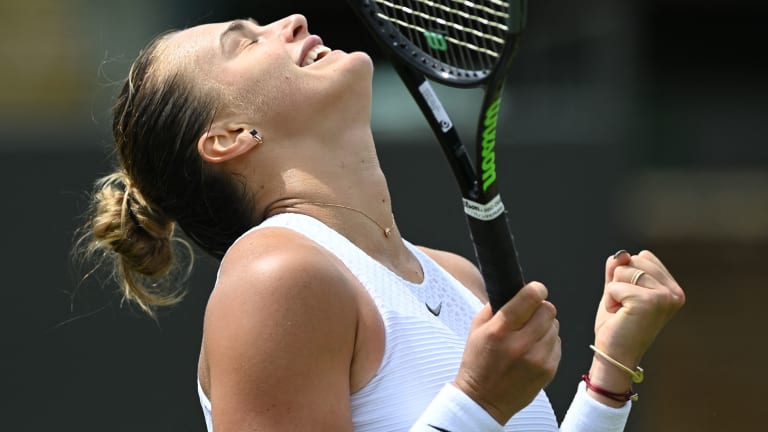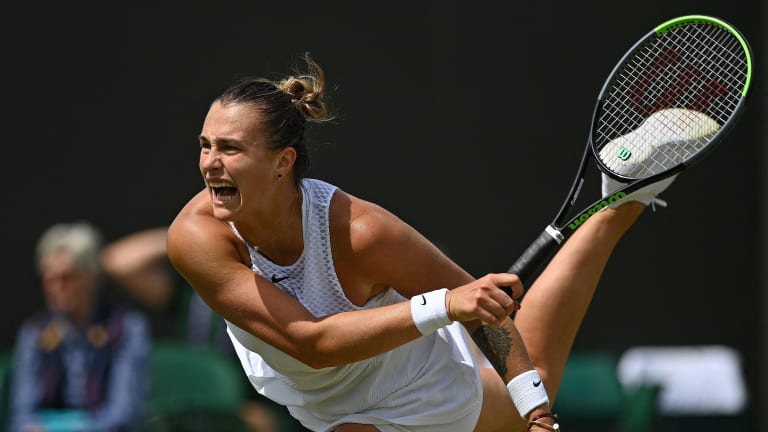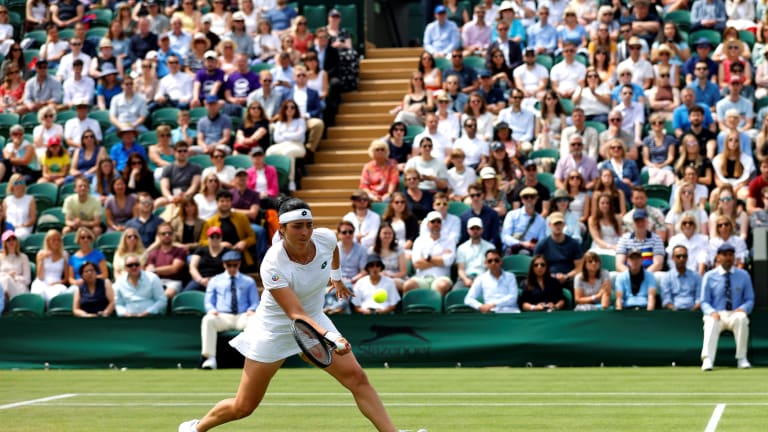Wimbledon
Aryna Sabalenka overpowers Elena Rybakina at Wimbledon, books maiden major quarterfinal against Ons Jabeur
By Jul 05, 2021Wimbledon
Wimbledon to replace line judges with electronic line calling from 2025
By Oct 09, 2024Wimbledon
The amazing journey of Henry Patten from IBM data logger to Wimbledon doubles champion
By Jul 16, 2024Wimbledon
Hsieh Su-Wei, Jan Zielinski win mixed doubles title at Wimbledon
By Jul 15, 2024Wimbledon
Why Wimbledon Endures
By Jul 15, 2024Wimbledon
Novak Djokovic seeks 2024 answers for Alcaraz and Sinner after great effort: 4 ATP Wimbledon takeaways
By Jul 14, 2024Wimbledon
Carlos Alcaraz is a champion establishing how high he will climb with latest Wimbledon title
By Jul 14, 2024Wimbledon
Nicolai Budkov Kjaer makes history in winning junior boys' Wimbledon title; Renata Jamrichova wins girls' title
By Jul 14, 2024Wimbledon
Carlos Alcaraz beats Novak Djokovic again in Wimbledon final for fourth Grand Slam title
By Jul 14, 2024Wimbledon
For Jasmine Paolini, Barbora Krejcikova was one forehand and one serve too good in the Wimbledon final
By Jul 13, 2024Wimbledon
Aryna Sabalenka overpowers Elena Rybakina at Wimbledon, books maiden major quarterfinal against Ons Jabeur
The forthcoming match will provide a stylistic contrast after the Belarusian's all-power effort on Monday.
Published Jul 05, 2021
Advertising
Advertising

No. 2 seed Sabalenka hadn't been past the fourth round in her first 14 Grand Slam appearances (Getty Images).
© AFP via Getty Images
Advertising
Advertising

Sabalenka struck a whopping 10 aces in three sets over Rybakina, and managed 31 total winners (Getty Images).
© AFP via Getty Images
Advertising

Jabeur is into her second Grand Slam quarterfinal after scoring back-to-back wins over Garbiñe Muguruza and Iga Swiatek (Getty Images).
© AFP via Getty Images